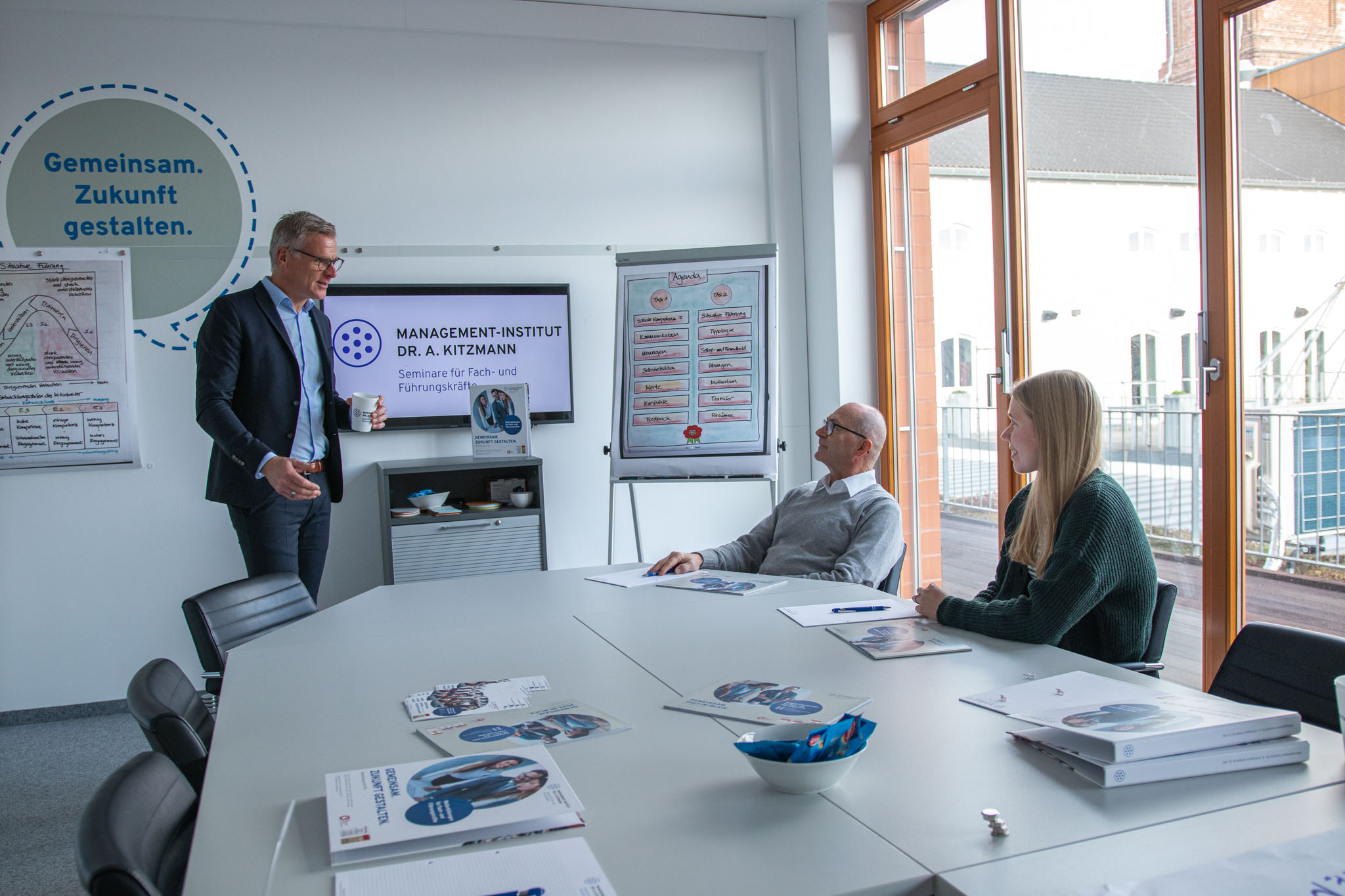
How do I become a successful manager? A conversation with an expert from the Management Institute Dr. A. Kitzmann
From employee to manager – with clarity and personality
An experienced executive coach and trainer at the Management Institute Dr. A. Kitzmann. He accompanies professionals on their way to their first management role and supports them in developing their individual leadership style. In the following interview, he provides practical insights into how to become a successful manager.
What makes a good manager?
Interviewer: What do you think makes a good manager?
Trainer: For me, leadership is much more than just technical knowledge. Of course, expertise is important, but other qualities are crucial. A good leader has emotional intelligence, self-awareness, and decision-making skills. Clear communication and an authentic manner are just as important.
Interviewer: What do employees specifically need from their manager?
Trainer: Above all, they need someone they can rely on. As a manager, you need to build trust with your employees and provide them with guidance even in challenging situations.
Interviewer: And if I can't do that yet, how do I develop such skills?
Trainer: By honestly examining your own strengths and weaknesses. Those who are willing to develop themselves further and accept feedback will gradually grow into their leadership role.
How can you successfully transition from colleague to manager?
Interviewer: Taking on a leadership role brings new challenges. What do you think is crucial in this regard?
Trainer: It's a clear change of roles. You no longer have just technical responsibility for the team, but also disciplinary responsibility. Important skills that a new manager needs to develop include delegating tasks, clarifying expectations, giving feedback, and managing unpleasant conflicts.
Interviewer: Above all, the relationship with former colleagues changes with the transition. How should this be handled?
Trainer: It is important that the old collegiality does not simply continue as before. A certain professional distance is needed to ensure that roles are clear. This also includes consciously reflecting on your own leadership style: How do I want to lead? What suits me? This doesn't happen overnight, but that's exactly where the real role change begins.
Tips for changing roles
Interviewer: What specific tips can you give new managers for changing roles?
Trainer: You should communicate your new role clearly from the outset and visibly take on responsibility. In addition, new managers should clearly discuss expectations within the team and represent their own point of view without coming across as authoritarian.
Motivating the team and promoting cohesion
Interviewer: Team motivation is a constant topic for managers. What do you think is the key to success?
Trainer: When people see meaning in their work, they are automatically more motivated. Ideally, as a manager, you should promote appreciation within the team and ensure that the team functions well.
Interviewer: What concrete steps can a manager take to achieve this in their day-to-day work?
Trainer: They should recognize the strengths and development potential of individual employees and promote these in a targeted manner. Clearly defined goals, feedback discussions, and an open culture of error management create a good atmosphere in the team, which strengthens motivation and willingness to perform. Joint successes should also be celebrated. However, team development is not a one-time event, but a continuous process. It should be noted that teams are not homogeneous. Different generations and working styles often come together within a team. This requires understanding and sensitivity.
Exchange and practice: What makes our management seminar special
Good leadership style is not developed at a desk, but through exchange, reflection, and practical experience. Our seminar “From Employee to Manager” offers the ideal setting for this. In small groups, you will practice typical leadership situations and receive concrete guidance for everyday management tasks. The seminar offers a practice-oriented, intensive learning environment for anyone who wants to confidently shape their leadership role.
Even more hands-on advice now in the seminar (held in German):